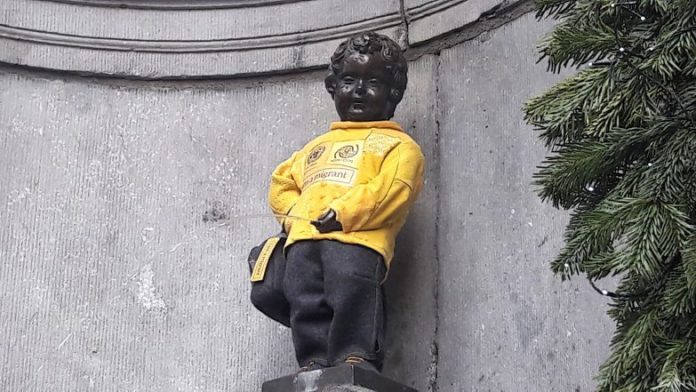The International Organization for Migration (IOM) marked International Migrants Day with a series of events in Brussels, including a visit to the new Migration Museum in Molenbeek, a film screening with debate, Syrian food and Middle Eastern dances. The Global Migration Film Festival’s movie “All people’s Orchestra”, demonstrated how music brings people together beyond frontiers and fosters social integration between migrants and refugees in host communities. It also addressed the issue of prejudices against migrants in society.
City of Brussels representative Elfi Dombret opened the debate by stating that “in Brussels, we have more than 180 nationalities present. Music is a powerful tool to provide a tempo to our everyday life. Music also promotes solidarity networks, by bringing people closer together. It is an intercultural experience to share harmony and solidarity”.

During the debate, moderated by UNRIC’s Deputy Director Caroline Petit, Amal Amjahid, eight times Jiu-Jitsu World Champion, explained that she is a second-generation immigrant herself and could see similarities between the effect of music and sport on social integration: “Sports changed my life and helped me overcome barriers. When I started Jiu-Jitsu, there was suddenly no more difference between me and the other athletes”. Today, she is committed to helping other students at the CENS academy in Molenbeek, which was established by her mother and aims at fostering social integration through sport. “I am here to share two messages with you – The first one is to the pessimists who think that we cannot integrate: This is false. The second goes to young people like me: Everything is possible”, the 24 years old athlete said.
Laura Corrado, Head of the Legal Migration & Integration Unit DG Home – European Commission, thanked Amal for her powerful message and acknowledged that Amal truly deserves her name that translated to “hope”. She stated that it is especially important to create a dialogue on the local level to achieve successful integration and that the European Commission will promote local initiatives and projects that foster social cohesion during the next five years.
Elisa Tsakiri, Head of the Policy and Programme Support Division – IOM Regional Office Brussels, agreed that people should connect to people from different backgrounds and share their stories and experiences with them. She also underlined that societies often forget about the importance of soft skills like creativity in creating cohesive societies and that projects like the “All people’s Orchestra” help to unfold these creative talents and bring people together.
An Italian guest in the audience shared how he was moved to be living in Belgium, a country that welcomed so many Italians 60 years ago who are now fully integrated. He recently published some comics on migration and refugees and highlighted the importance of arts in the integration process.
The panellists agreed that migrants and refugees play an important role in the implementation of the Agenda 2030 as they promote sustainable development in their country of origin and in their host communities. “On International Migrants Day, we celebrate migrants and host communities because together they promote a better future for everyone. This is a process where no one should be left behind”, Caroline Petit said.

Dancers from the Watan Dabke Dance Group, an international group of Middle Eastern folkloric dancers, introduced the audience to some traditional folkloric dance by giving a workshop and presented a dance show. The group’s objective is to promote intercultural dialogue and solidarity through art, and they succeeded in bringing all to the floor.
The City of Brussels supported the International Migrants Day by dressing the Manneken Pis in its “I am a migrant” outfit yesterday as a symbol to welcome all nationalities and cultures into the Capital of Europe. His new costume, made of assembled pieces of recycled fabric, echoes with the many migratory routes and multi-layered social ties between cultures, the countless individual contributions which go into the construction of a more united and inclusive society.
Additional links:

